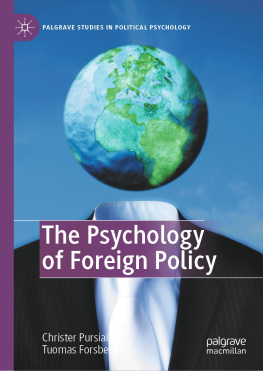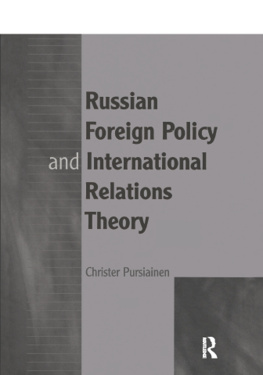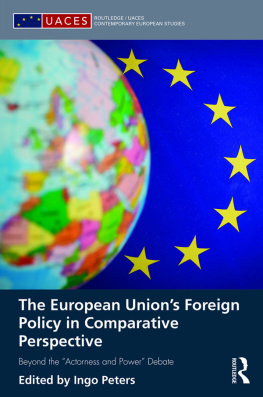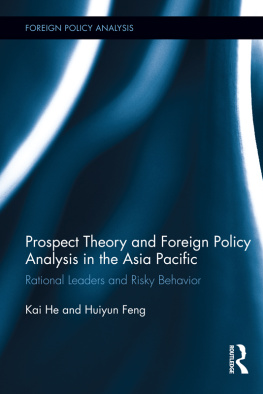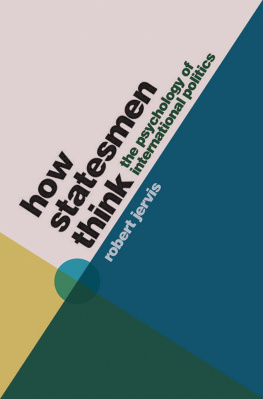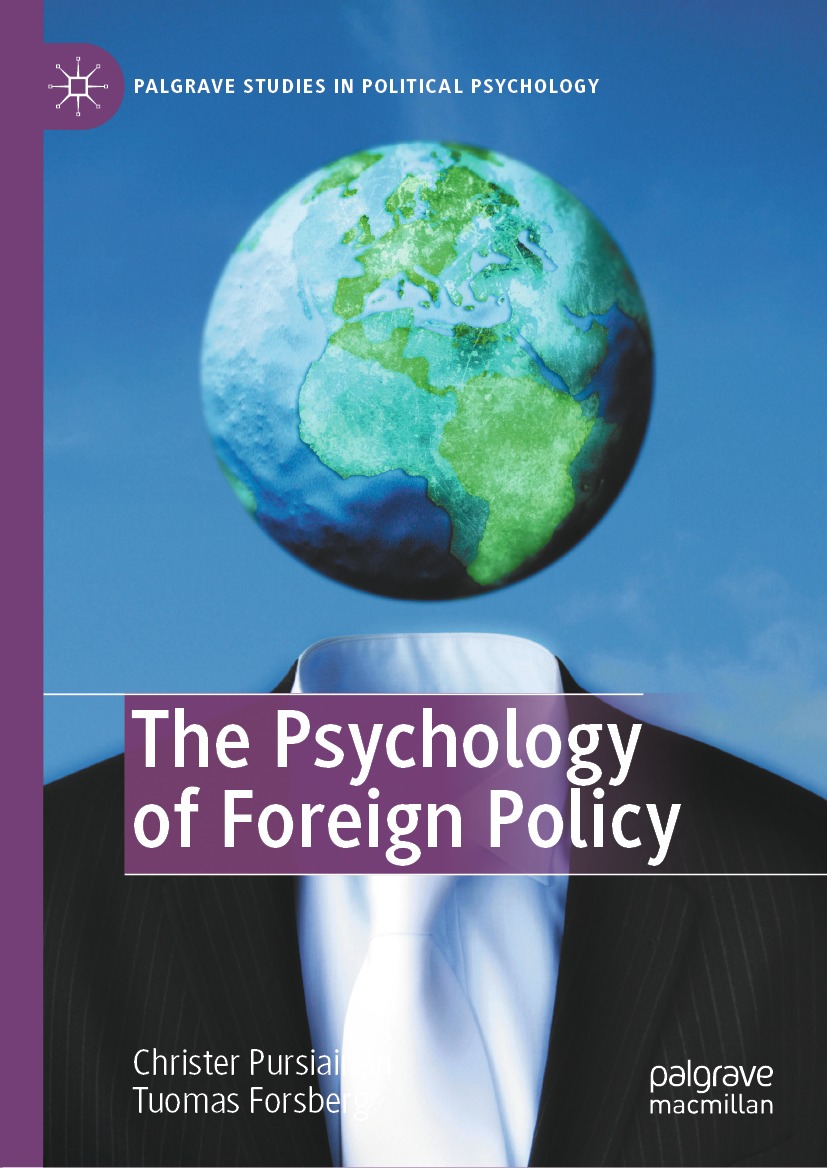Palgrave Studies in Political Psychology
Series Editors
Paul Nesbitt-Larking
Huron College, University of Western Ontario, London, Canada
Catarina Kinnvall
Department of Political Science, Lund University, Lund, Sweden
Tereza Capelos
Institute for Conflict, Cooperation and Security, University of Birmingham, Birmingham, UK
Henk Dekker
Leiden University, Professor Emeritus of Political Science, Leiden, The Netherlands
The Palgrave Studies in Political Psychology book series profiles a range of innovative contributions that investigate the leading political issues and perspectives of our time. The academic field of political psychology has been developing for almost fifty years and is now a well-established subfield of enquiry in the North American academy. In the context of new global forces of political challenge and change as well as rapidly evolving political practices and political identities, Palgrave Studies in Political Psychology builds upon the North American foundations through profiling studies from Europe and the broader global context. From a theoretical perspective, the series incorporates constructionist, historical, (post)structuralist, and postcolonial analyses. Methodologically, the series is open to a range of approaches to political psychology. Psychoanalytic approaches, critical social psychology, critical discourse analysis, Social Identity Theory, rhetorical analysis, social representations, and a range of quantitative and qualitative methodologies exemplify the range of approaches to the empirical world welcomed in the series. The series integrates approaches to political psychology that address matters of urgency and concern from a global perspective, including theories and perspectives on world politics and a range of international issues: the rise of social protest movements for democratic change, notably in the global South and the Middle East; the Israeli-Palestinian conflict and its broader implications; patterns of global migration and associated challenges of integration and religious accommodation; the formation and deformation of political, economic, and strategic transnational entities such as the European Union; conflicts and violence resulting from local and regional nationalisms; emerging political movements of the new left and the new right; ethnic violence; legacies of war and colonization; and class conflict. To submit a proposal, please contact Senior Editor Ambra Finotello ambra.finotello@palgrave.com.
More information about this series at http://www.palgrave.com/gp/series/14600
Christer Pursiainen and Tuomas Forsberg
The Psychology of Foreign Policy
1st ed. 2021

Logo of the publisher
Christer Pursiainen
Department of Technology and Safety, UiT The Arctic University of Norway, Troms, Norway
Tuomas Forsberg
Helsinki Collegium for Advanced Studies, University of Helsinki, Helsinki, Finland
Palgrave Studies in Political Psychology
ISBN 978-3-030-79886-4 e-ISBN 978-3-030-79887-1
https://doi.org/10.1007/978-3-030-79887-1
The Editor(s) (if applicable) and The Author(s), under exclusive license to Springer Nature Switzerland AG 2021
This work is subject to copyright. All rights are solely and exclusively licensed by the Publisher, whether the whole or part of the material is concerned, specifically the rights of translation, reprinting, reuse of illustrations, recitation, broadcasting, reproduction on microfilms or in any other physical way, and transmission or information storage and retrieval, electronic adaptation, computer software, or by similar or dissimilar methodology now known or hereafter developed.
The use of general descriptive names, registered names, trademarks, service marks, etc. in this publication does not imply, even in the absence of a specific statement, that such names are exempt from the relevant protective laws and regulations and therefore free for general use.
The publisher, the authors and the editors are safe to assume that the advice and information in this book are believed to be true and accurate at the date of publication. Neither the publisher nor the authors or the editors give a warranty, expressed or implied, with respect to the material contained herein or for any errors or omissions that may have been made. The publisher remains neutral with regard to jurisdictional claims in published maps and institutional affiliations.
Cover illustration: Blackout Concepts/Alamy Stock Photo
This Palgrave Macmillan imprint is published by the registered company Springer Nature Switzerland AG
The registered company address is: Gewerbestrasse 11, 6330 Cham, Switzerland
Preface and Acknowledgements
This book focuses on the role of psychological theories in International Relations (IR) and its subfield Foreign Policy Analysis (FPA), with a particular emphasis on decision-making. From time to time, every academic field requires comprehensive reappraisal to gain a clearer understanding of the state of the art, and to further its development. We considered that a thoroughly researched, critical and updated analysis of the current field would not be out of place at the present time.
Our fervent wish is to make a meaningful contribution to the debates on our subject. The book paints a detailed picture of its subject area, making a holistic, structured and comparative case for the significance of psychological factors in the study and practice of foreign policy decision-making. We will highlight the achievements and potential of the diversity of psychological theories, as well as identify their challenges and limitations. While being pluralistic in its theoretical and methodological spirit, the book introduces well-justified alternative angles to explore the roots, processes, and outcomes of foreign policy decision-making.
We envisage that the audience for the book will comprise scholars and students of IR, FPA, political psychology, and beyond. For those already specialized in psychological theories with a view to understanding or explaining foreign policies, the book aspires to become a source of inspiration and critical thinking both now and in the future. The content also contributes to more general IR debates about such issues as levels of analysis, agentstructure relations, cause and effect, rationality, and the reliability and validity of research methodology and data-gathering, among many other topics.
We maintain that psychology is ever-present in any decision-making and should be taken into account in efforts to explain or understand foreign policy. This is not a ground-breaking claim as such, and is more akin to common sense. Yet we argue that this notion is not duly reflected in the mainstream study of international politics. In our discussions with our colleagues, our aim has sometimes been referred to as a call to take agency seriously. We hope to take some steps towards that goal.
Our comparative look at the array of psychological theories that are applicable to foreign policy studies shows that the research field itself is far from monolithic. It is in essence a diverse collection of approaches based on widely different ontological, epistemological and axiological assumptions, as well as methodological solutions and practices. This obviously presents a challenge to the efforts to integrate such a complex and incoherent field more closely into IR. Given the breadth of the theme in general, we inevitably pose more immediate questions and problems than we provide definitive answers and solutions. Yet the book seeks to identify the key challenges of the subject and provide some promising directions for addressing them.

